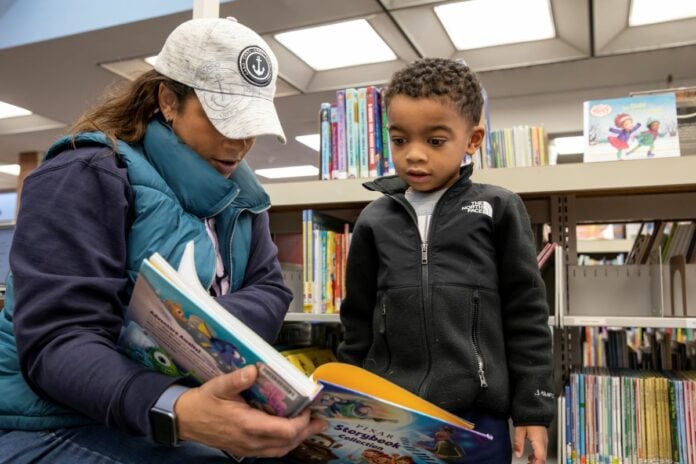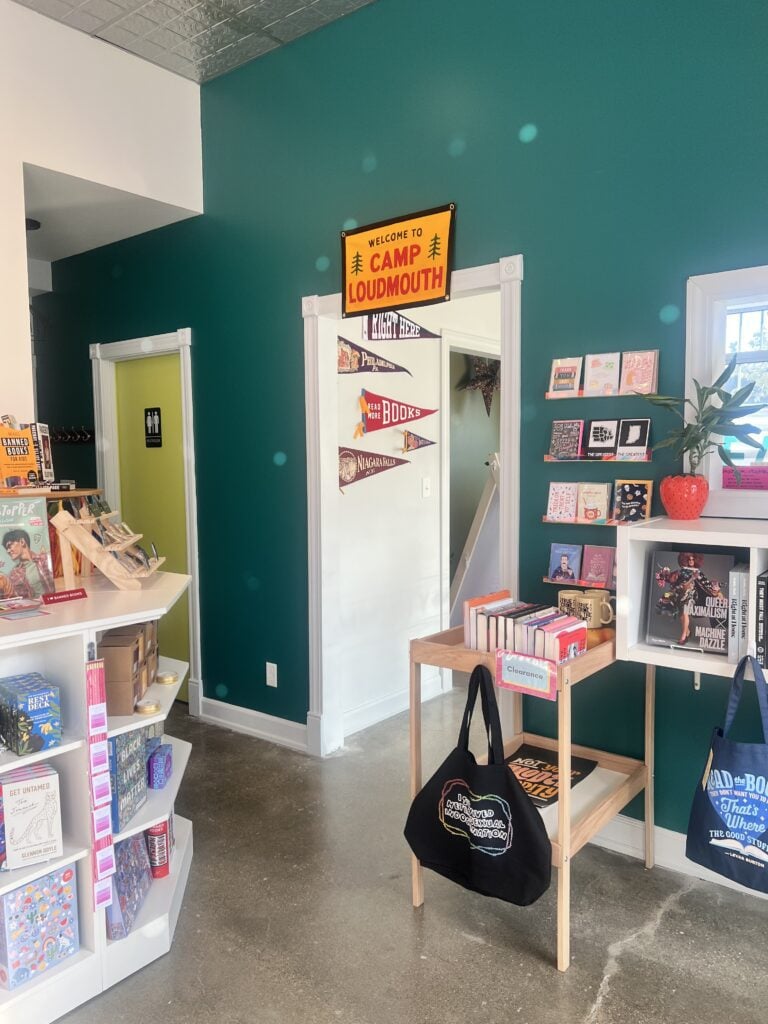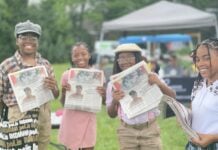
March is National Reading Month, and what better way to celebrate than to start a new book or set a new reading goal?
Reading is fundamental to a person’s development of literacy and comprehension skills, and introducing children to books and reading at a young age can help instill confidence in reading and writing habits as well as develop their oral language development, phonological awareness and print awareness, according to an article from Indiana University.
“I think decoding is the number one reason that kids and teens need to develop good reading habits,” Christopher Hogsett, regional branch manager for Indianapolis Public Library Pike Branch, said. “There are inferences and things that take place while reading. I think it’s just important for skill so that when they go off into the adult world, it makes it easier for them to not only decode what they’re reading, it makes it easier to decode other people.”
Some of the benefits to starting a reading routine at an early age include preparing children for academic success, Hogsett said. Reading with a parent or guardian either 20 minutes per day or before bedtime helps develop a bond with the child, increases concentration and discipline, improves imagination and creativity, and, hopefully, fosters a lifelong love of reading, he said.
More importantly, having access to books with diverse characters and stories that reflect who the reader is and can be is crucial in terms of developing a society of more empathetic and understanding people, Leah Johnson, author of children and young adult books, said.
“The most important thing to remember is that books offer us mirrors that reflect ourselves back to us and windows into experiences that are unlike our own,” Johnson said. “So, they are the connective tissue that binds us all together, and that’s as old as time. As long as humans have been telling stories, it has been a way for us to be connected to each other.
Where to start
The Indianapolis Public Library offers regular storytimes at each of its branches, which can act as an introduction to reading outside of their parents for infants and toddlers, Hogsett added.
“They also find that it’s enjoyable because there’s no assignment attached to it yet, you’re just coming and enjoying these storytimes,” Hogsett said. “I think that’s the most important part of the programs that we have is, like, if they are enjoyable, reading doesn’t become a chore.”
Johnson, who is also the owner of Loudmouth Books, Indy’s only “Banned” bookstore, said anything that is done often enough becomes a habit. When children, teens and young adults are introduced to and start reading books they are passionate about, the act of reading can excite them and make them want to “show up to the page every day.”

Good literature is any literature that gets kids to read, Johnson said, and from the very first moment a child shows up to a book, they should be able to see they are a main character and not a sidekick — this includes POC characters, queer characters and disabled characters.
“We have a Y/A [young adult] book club every month, where we choose Y/A titles past and present to, hopefully, get young people and young at heart to be in conversation about stories,” Johnson said. “I think so often in stories and publishing, adult readers are prioritized, but our book club really just centers young people’s voices and puts older people in a position to listen.”
Some of the best ways to set reading goals, especially with children, is to start by reading with them before bed each night, Hogsett said. When children get older and can start to read on their own, setting a goal to read 20-30 minutes each day is also beneficial to making it part of their regular schedule.
It does not have to be formal reading either, Hogsett added. Even just reading the funny pages in the newspaper or completing a crossword puzzle or word search — anything involving literacy — can count toward the 20 minutes per day. Graphic novels, audio books and e-books also count as literature, Johnson added.
“Once it becomes enjoyable, it’s something that you miss,” he said. “It’s kind of like when you start a new exercise program: it takes a little bit to get up to speed until it becomes like, ‘Oh, this is just part of my regular day.’”
Finding your next read
The Indianapolis Public Library and Loudmouth Books make finding something new and encouraging reading easy. IndyPL has an online book list at indypl.org. Parents and kids can search by kids, teen and adult categories as well as by award winners, best sellers, staff picks and seasonal selections for Women’s History Month and March Madness, Hogsett said.
“Go to your local independent bookstore and ask the booksellers there for recommendations,” Johnson said. “Booksellers can give you recommendations that no algorithm is going to come up with. Algorithms respond to what you already like; booksellers can intuit what you could maybe like next time, and so, ask the people who are the pros.”
In terms of picking up your next read, Hogsett recommends “Hip and Hop Don’t Stop” by Jef Czekaj for pre-K through second grade readers. Johnson is currently reading sports romances, including “How You Get the Girl” by Anita Kelly.
“The best part about working in the bookstore as a writer is being able to see the books that are hitting The New York Times Best Seller list, the books that are the celebrity book club picks, they’re always the books that just like regular people want to read,” she said. “The books that folks want to read are the books that get them excited, that offer them something that they’ve never seen before.”
Contact staff writer Chloe McGowan at 317-762-7848. Follow her on Twitter @chloe_mcgowanxx.
Chloe McGowan is the Arts & Culture Reporter for the Indianapolis Recorder Newspaper. Originally from Columbus, OH, Chloe graduated with a degree in journalism from The Ohio State University. She is a former IndyStar Pulliam Fellow, and her previous work includes freelancing for Indy Maven, Assistant Arts & Life Editor for The Lantern, and editorial assistant at CityScene Media Group. Chloe enjoys covering all things arts and culture — from local music, visual art, dance, theater and film, as well as minority-owned businesses. In her free time, Chloe enjoys reading, cooking and keeping her plants alive.




